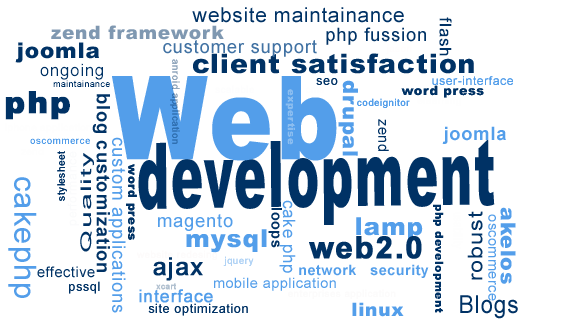
10 Commandments of The Complete Developer
February 24, 2014
Top 5 Trends in Social Media
February 28, 2014“Links are still the best way that we’ve found to discover (how relevant or important somebody is) and maybe, over time, social or authorship or other types of mark-up will give us a lot more information about that.” – Matt Cutts
There needn’t be another explanation stating the importance of Link Building, when it’s been publicized by the team leader of Google Web-spam, Matt Cutts himself. For the new comer, Link Building is the art of improving the quantity and quality of links to a web-page. In the fight for rank between websites, understanding how search engines value the elements of a link, and how they factor into the weighting of links in the algorithm, is critical.
Link building is considered the easiest way for a computer program to judge the importance and trustworthiness of a Web page. So sigh away the fear of link popularity losing its importance in the near future.
So what exactly is the fight for?
Global Popularity:
The more popular and important a site is, the more links from that site matter. Make sure that the contents provided are relevant and context-focused. Such a site is likely to be recommended by all. Wikipedia, for instance, has literally thousands of inbound links, which means it’s probably a popular and important site.
Trust Rank
Researchers have estimated that about 60% of the web’s pages are spam, which is no surprise. In order to weed out irrelevant content, search engines use organically improved algorithms for measuring trust, many of which are based on the link graph. Earning links from highly trusted domains can result in a significant boost factor. Universities, government websites and non-profit organizations are examples of high-trust domains.
How to top the list?
- The strategy is simple, evolve with the Penguin. Easy as it may sound, it’s the work that breaks the sweat.
- The Penguin algorithm update was designed by Google, after the Panda, aiming at decreasing search engine rankings of websites that violate Google’s Webmaster Guidelines.
- There is but one way to improve ranking and race the search – Create something worth linking to! The problem is this isn’t simple, and far from fun. It requires planning, research, creativity and hard work. Why? Because getting 10,000 links in a week is not as beneficial as getting 10,000 links over the span of 6 months. When a site suddenly gets a ton of links, this throws up a red flag at the search engines that the site may be trying to cheat its way to the top.
Beneficial link signals:
1. Anchor Texts
One of the strongest signals the engines use in rankings is anchor text . If dozens of links point to a page with the right keywords, that page has a very good probability of ranking well for the targeted phrase in that anchor text.
2. Local Popularity
The Teoma search engine was the first to bring the concept of “local” popularity (or Topic-Specific popularity) into search algorithms. It suggests that links from sites that are topic-specific matter more than links from general or off-topic sites
For example, if your website sells shoes, earning links from Trademarked brands like Nike, or Adidas matter much more than earning links from an off-topic website.
3. Validity/Freshness
Link signals lose its value over time. Sites that were once popular often go stale, and eventually sink down the rank list as they fail to earn new links. Thus, it’s important to not earn links alone to your website, but also to continue to earn fresh ones over time. Commonly referred to as “FreshRank”, search engines use the freshness of links to judge current popularity and relevance.
4. Social Sharing
The amount of content shared through social network services today, like Facebook, Twitter and Google+, is incredible and increasing even as you read this. Search engines treat such links differently from usual links, but they notice them nonetheless.
Where should my focus be for 2014?
1. Focus on acquiring links that require human intervention and approval.
2. Post relevant content. Give readers what they are looking for.
3. Quality, beats quality, every time!
The work may be hard and heavy, but the reward is worth it all!

